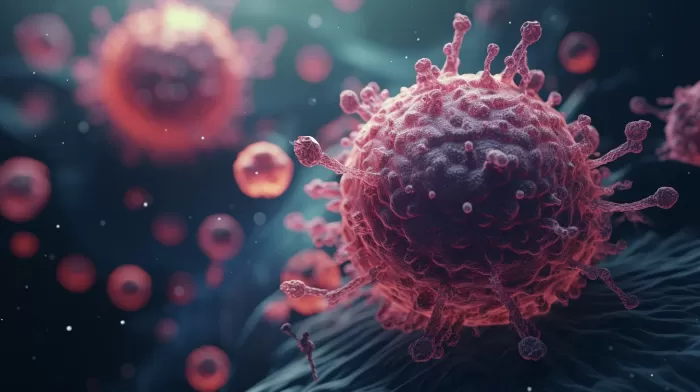There’s a common virus linked to an alarming range of cancers, and most people test positive for it without even being aware. The Epstein-Barr virus (EBV), often associated with mononucleosis – or glandular fever – has connections to two types of lymphoma, throat cancer, stomach cancer, and connective tissue cancer. Now, a recent study published in the journal EBioMedicine adds breast cancer to the list!
Researchers discovered that EBV binds to breast cells and infects them, causing the cells to act like stem cells and continuously divide. When they exposed breast cells to EBV in a petri dish and implanted them into mice, they noticed infected cells cooperated with cancer-causing proteins to cause breast cancer. It is believed that breast epithelial cells exposed to the virus can be infected, and while most individuals might not see any long-term consequences, in some cases, decades later, subtle genetic changes facilitate breast cancer formation.
If you haven’t had Epstein-Barr or mononucleosis already, you might want to consider pumping up your intake of natural antivirals to shield yourself from this malicious virus with potentially severe long-term consequences.
One natural antiviral vitamin to consider is vitamin D. Research in Africa reveals that it holds such potent immune-boosting benefits that it can even help the body battle incredibly virulent invaders, such as HIV-1. Vitamin D is, in fact, thought to be one of the most powerful natural antivirals available. Other natural antivirals to consider for protection from Epstein-Barr include:
- Astragalus
- Echinacea
- Olive leaf extract
For those who have contracted Epstein-Barr already, it’s essential to take breast cancer prevention strategies seriously to minimize risk.
Some ways to decrease the likelihood of breast cancer include:
- Avoiding cigarettes and alcohol
- Eating plenty of fruits and vegetables, particularly those packed with cancer-fighting vitamin C
- Not consuming too much soy, which can turn on genes linked to cancer growth
- Avoiding hormonal birth control pills and hormone replacement therapy
- Keeping clear of parabens and phthalates in personal care products
- Engaging in regular exercise, aiming for at least 30 minutes per day
- And maintaining a healthy body weight to prevent cancer-fueling fat cells
By preventing exposure to the Epstein-Barr virus, adopting a healthy lifestyle, and increasing the intake of antiviral compounds, individuals can take steps to protect themselves from this often symptom-free virus that can lead to a variety of cancers.



